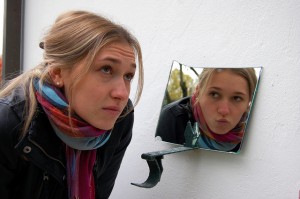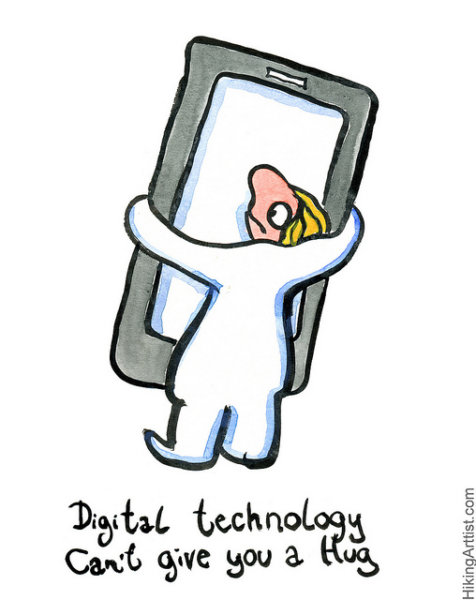How to Overcome Loneliness – The 3 Stages You Need to Know
BY JOHN BARTON
Feeling lonely? In this you are definitely not alone. Never before have people felt so isolated in such colossally large numbers. Author and political activist George Monbiot calls it ‘the Age of Loneliness’, with Britain recently voted the loneliness capital of Europe in a study by the Office for National Statistics. Apparently, Brits are the least likely of all EU citizens to befriend their neighbours or have strong social connections .
Psychologist John Bowlby, famed for his work developing the now widely accepted Attachment theory, felt that contact and intimacy are basic human needs, like food or water. We seek connection and to be understood – it is through the ‘social synapse’ that we develop as babies, grow as adults, and come to life as ourselves.
But in our highly-populated, turbocharged, 24/7 world, many of us find ourselves utterly starved of basic human warmth. Our digital devices are connected, but our hearts and souls are not. We are alienated from each other – and ourselves.
But loneliness exists for a reason, and from another perspective, it’s something to have gratitude for. Why? It’s the canary in the coal mine. A red flashing light on your psychic dashboard. Loneliness is a warning sign from yourself to you. It’s letting you know things are not all right in your stratosphere and it’s time to stop, take a deep breath, and figure out – in a kind and gentle way – to learn how to relieve your inner pain and get what you need from life and others.
1. Get to know your loneliness

By: MattJP
The first stage of overcoming loneliness is to let yourself feel your loneliness fully. Just like it’s hard to fix a burnt out lightbulb without looking at it or even knowing its wattage, it’s hard to change things in life unless we take the time to fully understand them. If you want to know how to overcome your loneliness, you need to know exactly what you are dealing with.
So it’s important to work to recognise and describe your loneliness. This process unites and integrates your feeling with your thinking, your reptilian brain with your human brain, and helps to process and regulate the pain.
Try these questions:
- What’s your actual experience of loneliness right now, in this moment and this day?
- How would you describe that felt sense?
- Where do you feel it in your body?
- What does it look like? (Maybe you’d like to draw it)
- If it had a voice, what would it say?
Next, it’s time to tell the story of your loneliness. Put it into words—through writing or journalling, speaking it out loud, or talking to a therapist.
 Is it temporary, the result of a relationship ending perhaps, or moving to a new town?
Is it temporary, the result of a relationship ending perhaps, or moving to a new town?- Or maybe it cuts much deeper. Were you lonely as a child—what memories come to mind?
- Could it be that your loneliness now serves you in some way? Is it a kind of compromise perhaps, a cooler alternative to the scary possibilities of love and hate?
- Does it keep you safe, or indulge your negative views of self, others, and the world?
- What theories do you have? (Maybe you didn’t get enough love when you were little and you learned to retreat to your own world. Or at some point you got the idea that you’re boring, unlovable, defective or just plain bad. Or you had unhappy experiences that left you afraid of being rejected, ridiculed or hurt).
Listen to what your loneliness is teaching you. Develop some kind of answer to the question, ‘why am I lonely?’
With a grasp on the What and Why, it’s time to look at the ‘How’ of your loneliness.
- How do you create your loneliness?
- What are your tendencies? Are you too proud, or too afraid, to say hello?
- Do you find fault in others so that you can tell yourself you’re better off on your own?
- Have you constructed your life in such a way as to minimise your opportunities for social interaction? (Such unconscious avoidant behaviours are called “maintaining factors.” By avoiding the thing that’s feared, the fear—and the thing—only grow).
And spend time looking at how you gauge the social interactions that you do have. For example, if you talk to someone and they don’t seem to be interested, you might think it’s just because they’re rude, and walk away. Or you might think it’s because they’re really shy, or preoccupied with their own troubles, which invites sympathy. Lonely people, however, are much more likely to take it as a personal rejection -“they don’t like me.” They are hypervigilant, almost expecting to be slighted. They misread the situation and take the blame and the shame, activating all the old self-rebuke, depression, and further withdrawal.
2. Get to know you
 The thing about loneliness is it feeds on itself, transmitting a needy kind of energy that says: “I want you to take my pain away, and do all my work for me. I want you to know me so I don’t have to.”
The thing about loneliness is it feeds on itself, transmitting a needy kind of energy that says: “I want you to take my pain away, and do all my work for me. I want you to know me so I don’t have to.”
One client said that she sometimes feels like a vampire in a social situation. The hunger repels people, exacerbating the loneliness, making the hunger even stronger.
Time to break that vicious circle. Maybe you’ve shut down, shut off, and shut yourself away. Your depression numbs the pain of being alone; so can drink and drugs. Or maybe it’s the opposite with you. You’re in high gear, trying to do and have it all, constantly juggling homes, jobs, partners, and high-energy pursuits. Another always busy client described feeling as if she was constantly on the run from a big, dark cloud.
Whatever self-avoidance strategies you use, it’s time to stop, now, and face yourself.
- Who are you, anyhow?
- What is the case for and against you?
- Are you really so bad?
- Can you engage, challenge and soften your cruel inner critic and instead cultivate a little self-nurturance and compassion?
It doesn’t matter who you are or what you’ve done, you belong here. Your life is worth living fully. Come as you are—perfect in your imperfections.
This all takes time—knowing ourselves is of course a lifelong process. But along the way, you might find you’ve learned to appreciate what Wordsworth called “the bliss of solitude” (with or without daffodils). A peaceful, uninterrupted evening alone—better yet, a whole weekend. A table for one. A single hotel room. A lone walk on the beach.
When you’re OK with such scenarios as the above, when you’re alone but no longer lonely—that’s when, paradoxically and miraculously, people show up in your life. Your self-acceptance becomes an extraordinary magnet.
3. Get to know other people
 Once you’re getting along OK with yourself, it’s time to “come out” to other people as you. If you think your social skills are poor, remember that all skills can be learned, and get better with practice. It’s time to focus on being out in the world making some sort of contact with other human beings.
Once you’re getting along OK with yourself, it’s time to “come out” to other people as you. If you think your social skills are poor, remember that all skills can be learned, and get better with practice. It’s time to focus on being out in the world making some sort of contact with other human beings.
Our connections to our surrogates—pets, stuffed animals, late-night radio talk show hosts, celebrities, gods—are all fine, but we need real, here and now, flesh and blood people in our lives. As with so many things, you learn how to do it by doing it.
Experiment with alternatives to your old patterns of thought and behaviour. Take some risks.
You will make mistakes. Your encounters won’t always go well. Some people will disappoint you, let you down, reject you. That’s all perfectly fine. Better to be in the game, learning about the highs and lows, than go through life on the sidelines.
Start off slow. If you’ve been alone for a while and suddenly you find yourself at a party, you might feel like a novice skier at the top of a black run. The fear could put you off skiing for life. Start off slow, on the social bunny slopes. Take small steps, with people in your world already.
Get into the habit of speaking to people you encounter. Say something to the person behind the till, anything, but say it with a smile. Volunteer; take a class; try internet meeting up sites, dating sites, event sites. It’s not hard to find people—there are 7 billion of ’em out there.
With each person that you meet, you don’t have to be charming or witty or “interesting.” You just have to be comfortable, happy to offer up some good energy, demanding nothing in return.
Your experience with loneliness will likely give you a unique sensitivity to the loneliness of others. The lonely are often hidden, on the fringes, but you can spot them. So pay it forward: reach out to them and offer them the gift of your newfound good energy, which is something like love. Through giving, you get; through getting, give. The opposite of loneliness will blossom wherever you go.
Still feeling lonely? Try reading our article, ‘7 Surprising Reasons You Are Still Feeling Lonely”.
Images by Bert Kaufmann, Ken Teegardin, Andrea, Frits Ahlefeldt-Laurvig
 John Barton is a counsellor (and trainee counselling psychologist/ psychotherapist), writer and blogger based in Marylebone, Central London. Visit him at http://www.johnbartontherapy.com/media.html/
John Barton is a counsellor (and trainee counselling psychologist/ psychotherapist), writer and blogger based in Marylebone, Central London. Visit him at http://www.johnbartontherapy.com/media.html/





Loneliness can also be caused by social exclusion. I don’t enjoy feeling this way; it hurts to be excluded all the time. No one wants me around.
Yes, very true, and thank you for sharing. We’re sad to hear that you feel excluded all the time. Have you reached out for any support on this matter? And to forget about other people for a moment, how are your feelings about yourself, do you feel okay with yourself, or are you struggling to accept and like yourself? We truly hope that you find the time to be kind to yourself no matter what other people say or do.
I would like to work with you to translate the topics and articles.
thanks a lot
Hi Imam, what would you be translating them for? Is the idea to have them available in different languages on our site? Thanks for your feedback.